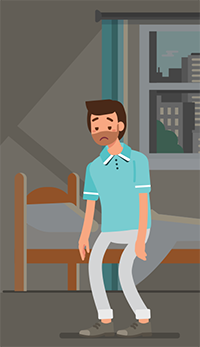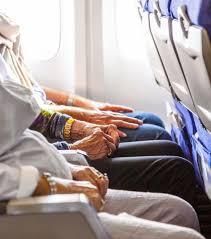 A recent report by the AARP Public Policy Institute and the United Hospital Fund discovered that family caregivers caring for a spouse or partner struggle to get by with significantly less help in the home than other types of caregivers. Although caring for a spouse has certain advantages, it has its fair share of disadvantages as well. Spousal caregivers often experience high levels of stress, since they live with the person they are caring for. Without any breaks, caregivers can easily burn out. Fortunately, there are alternatives available, such as homecare systems and homecare software like ClearCare Online. Homecare systems like this offer a supportive solution for caregivers who need the occasional break.
A recent report by the AARP Public Policy Institute and the United Hospital Fund discovered that family caregivers caring for a spouse or partner struggle to get by with significantly less help in the home than other types of caregivers. Although caring for a spouse has certain advantages, it has its fair share of disadvantages as well. Spousal caregivers often experience high levels of stress, since they live with the person they are caring for. Without any breaks, caregivers can easily burn out. Fortunately, there are alternatives available, such as homecare systems and homecare software like ClearCare Online. Homecare systems like this offer a supportive solution for caregivers who need the occasional break.
The Challenges of Spousal Caregiving
Studies show that the typical family caregiver is approximately 54 years old and receives at least occasional assistance from other family members. Spousal caregivers, on the other hand, are an average of 64 years old, live alone with their partner, and have much less assistance. Here are a few other interesting statistics:
- 84% of spousal care recipients receive no visits from home care aides or health care professionals, compared to 65% of non-spousal care recipients.
- 65% perform medical/nursing tasks compared to 42% of non-spousal caregivers.
- Only 2% of spousal caregivers live separately from the person they care for.
Spousal caregivers may hesitate to ask others for help because they are afraid of embarrassing their partners. They may also feel a strong sense of obligation to do everything themselves. But this attitude can be damaging.
"It is important that, as a caregiver of a spouse, you don't assume you can handle everything," explains caregiver stress expert, Dr. Richard Schulz. "In a study in the Journal of the American Medical Association, we found that spousal caregivers who experienced mental or emotional strain were more likely to die sooner than non-caregivers.” Suffice it to say, asking for help is critical. But where can help be found?
Many senior couples have found significant relief by employing an in-home caregiver, specifically one that uses web-based homecare software for real-time daily care updates. Homecare systems like ClearCare Online provide a level of transparency and visibility that gives real peace of mind to family members – even when they are far away. Adult children or grandchildren can check in on their older loved ones by logging into their homecare software on their computer, tablet, or Smartphone. Spouses can rest easy knowing that important daily tasks will always be completed, thanks to a reliable scheduling system. If you are serving as a caregiver to your spouse, imagine the relief you will feel knowing your burdens have been shared!
Homecare systems and homecare software like ClearCare Online have been developed to help keep seniors safe and comfortable in their homes for as long as possible. This kind of help does not limit a senior’s independence – rather it helps maintain it. Without the stress and anxiety caused by caring for an ill or disabled spouse, seniors can simply help make life more enjoyable for their partner.
What questions about homecare systems and homecare software do you have? Drop us a note and let us know!









